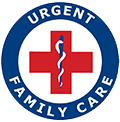Itchy skin (sometimes called pruritis) can be very uncomfortable. The itchy skin may appear normal, or it may be accompanied by
- Redness
- Bumps, spots or blisters
- Dryness and cracking
- A leathery or scaly texture
Scratching itchy skin can aggravate the condition and make you want to scratch even more. It is important to break this itch-and-scratch cycle because too much scratching can damage the skin or introduce bacteria and cause infection.
Causes of Itchy Skin
Itchy skin has a variety of causes. Some people have very sensitive skin that reacts to changes in the weather and exposure to household irritants like cleaning products and soaps. Others may suddenly develop a skin problem they never had before.
Causes of itchy skin include:
- Food allergies
- Allergic reactions to substances that touch the skin, such as soaps, fabrics, or metals
- Exposure to certain plants, such as poison ivy or poison oak, stinging nettles, or milkweed sap
- Skin infections
- Rashes from infectious diseases such as German measles or chicken pox
Itchy skin can result from an underlying condition such as psoriasis, dermatitis, or eczema. It can also be a symptom of kidney failure or liver disease. For such conditions also seek medical attention, we at Urgent Family Care in Knoxville, Tennessee are here to help.
Treatment for Itchy Skin
You can temporarily relieve itchy skin with over-the-counter products like itching creams and calamine lotion, moisturizers, and cool baths.
To get long-term relief, you need to identify the cause of the itching. Rashes caused by disease or exposure to irritating substances often run their course and clear up by themselves. If your itchy skin is an allergic reaction, you must learn to avoid the conditions that trigger your allergy or work with an allergist. An underlying condition or disease that causes itching must be diagnosed and treated.
Seek medical treatment for itchy skin if:
- The itching lasts more than two weeks and does not respond to over-the-counter lotions and creams.
- The discomfort distracts you or disturbs your sleep.
- You can’t think of any reason for the itching.
- Your whole body itches.
- You have other symptoms, such as fatigue, weight loss, changes in bowel habits or urination, fever, or redness of the skin.
Treatment for itchy skin is available without appointment at Urgent Family Care in Knoxville, Tennessee.
DISCLAIMER: The information on this page is not intended to replace the advice of a physician. It is information that is generally available. Always seek the advice of a physician or other qualified healthcare provider with any questions you may have regarding a medical condition. If you believe you are experiencing a medical emergency, call 911.
